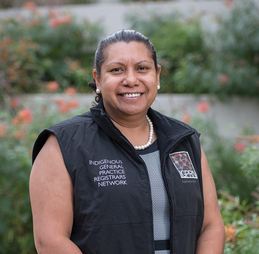
Aboriginal doctors are getting stuck in the urban hospital system rather than working in the rural and remote communities where they are most needed, says Indigenous GP Dr Aleeta Fejo.
Dr Fejo, a Flinders University medical graduate who practises as a family doctor in the Northern Territory, says that although numbers of Indigenous medical graduates are increasing, the education and training system has developed a bottleneck.
And according to her new book Shattering Stereotypes: Experiences of Australian and Canadian First Nation General Practitioners and Family Doctors, part of the reason for this unfulfilled potential is attributable to racism and bullying within the health system.
Dr Fejo, who graduated in 2004 and gained her general practice fellowship in 2013, is the founder of the Indigenous General Practitioner Registrar Network, which aims to offer peer support and advice to Aboriginal and Torres Strait Islander GP registrars.
“There are about 30 Aboriginal Fellow GPs in Australia and about 30 GP registrars, with about a hundred doctors in the hospital system and about 200 medical students behind them,” Dr Fejo said.
“But there have been a lot of issues that are not letting the registrars progress smoothly from general practice registrar training into Fellowship, where they are consultants and can work independently.”
Despite existing Government funding, Dr Fejo says the registrars commonly face problems with resources, including the cost of sitting specialist exams.
“Some of the Aboriginal registrars are really struggling,” Dr Fejo said.
The aim of publishing personal accounts by Indigenous Australian GPs and First Nation Canadian GPs is to encourage prospective family and community doctors through hearing the authentic voices of those who have completed the journey.
Aboriginal people are constantly stereotyped with characteristics such as laziness, lack of motivation or lack of intellectual ability, Dr Fejo says.
“Here are stories that blow stereotypes out of the water, because these people have again and again faced the odds, hurdle after hurdle, and have been successful.”
Dr Fejo says the book also summarises some of the recurrent themes and issues, and reveals that Aboriginal interns and registrars are likely to encounter very negative responses within the health system.
Dr Fejo says that as a registrar, she experienced blatantly racist attitudes and comments, including from one of her own supervisors.
She says she would like the book to be read by all medical students and medical educators, as well as people within the health system.
“We need to change the system so that we have more success, and we don’t lose our doctors at the end of this hard, hard journey,” she says.
“With a significant increase in the number of Aboriginal GP Fellows we could transform Aboriginal health almost overnight.”
Professor Michael Kidd, Executive Dean of the Faculty of Medicine, Nursing and Health Sciences at Flinders, said Dr Fejo’s book provides important lessons for our nation.
“Flinders, along with other universities across our country, is supporting the training of an increasing number of Aboriginal and Torres Strait Islander people as doctors and other health professionals,” Professor Kidd said.
“On completion of medical school, our doctors need opportunities to complete postgraduate training in their chosen medical specialty, and it is important that barriers to successful completion are identified and addressed.”
Funds from sales of the book will be used to support Aboriginal GP registrars with access to resources.
Shattering Stereotypes will be launched in the Flinders University Medical Library on Level 5 of the Flinders Medical Centre at 6pm on Thursday, September 17.

